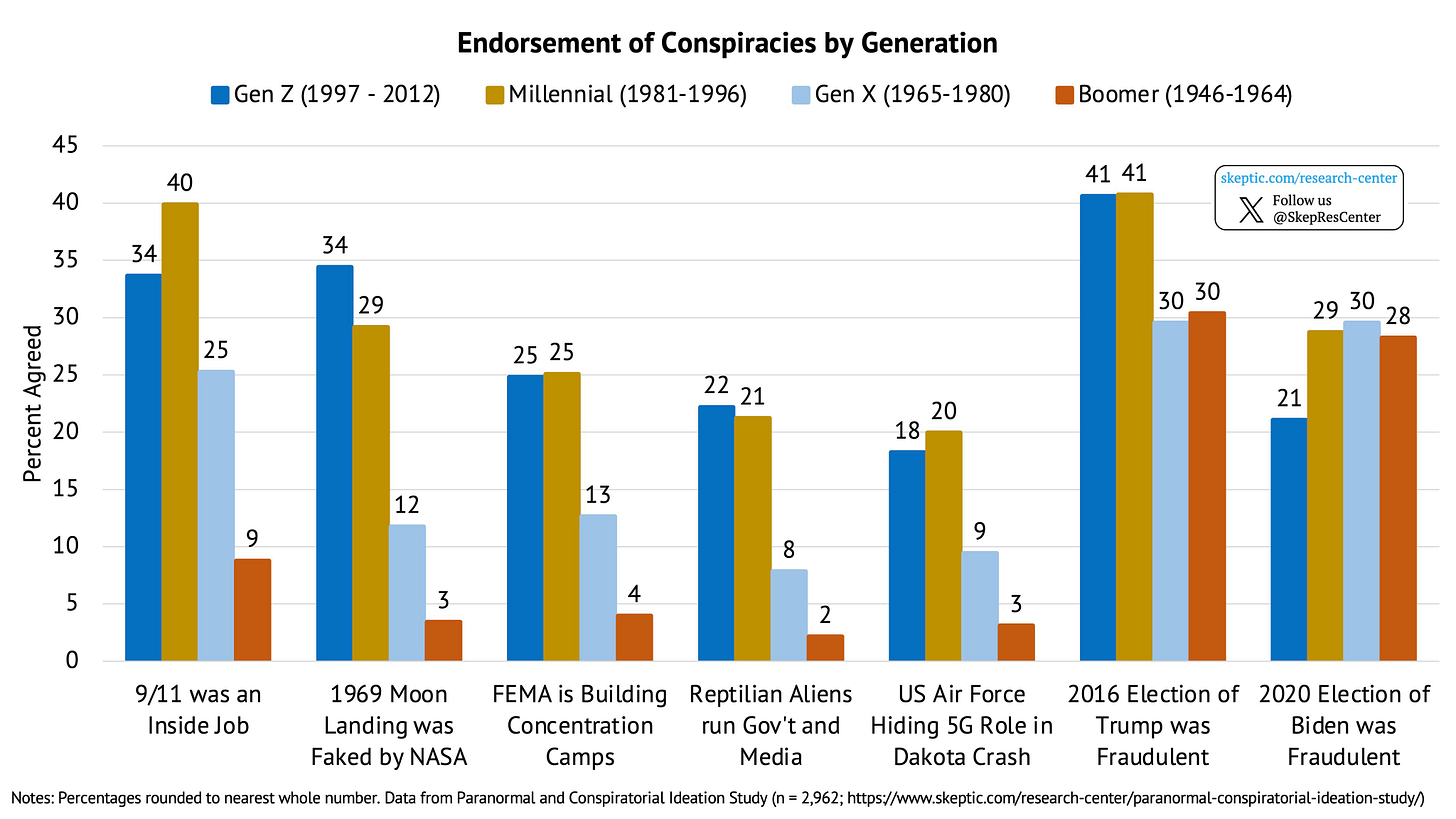Who Believes Conspiracy Theories?
More people believe the 2016 U.S. election was fraudulent than that the 2020 election was

A survey by the Skeptic Research Center has turned up some very interesting findings about conspiracy beliefs. Among other things, the survey found that…
More people believe that the 2016 U.S. election was fraudulent than that the 2020 election was.
Zoomers and Millennials are more prone to conspiracy beliefs than Xers and Boomers.
Around one-in-five Zoomers and Millennials report believing that the Air Force is hiding evidence about the Dakota Crash… an event the survey makers made up.
Skeptic Research Center surveys are based on large, representative samples of U.S. citizens. For more fascinating findings, check out their webpage here.
Follow Steve on Twitter/X.
This post was free to read for all. If you enjoyed it and want access to all Nature-Nurture-Nietzsche-Newsletter content, consider upgrading to a paid subscription. You can read about the benefits of a paid subscription here.



I'm curious what you think about the reliability of these survey answers. I can't shake the feeling that, more and more, people are just messing with the surveys and putting down random or trollish answers. It's hard (for me) to believe some of these results are true reflections of people's beliefs.